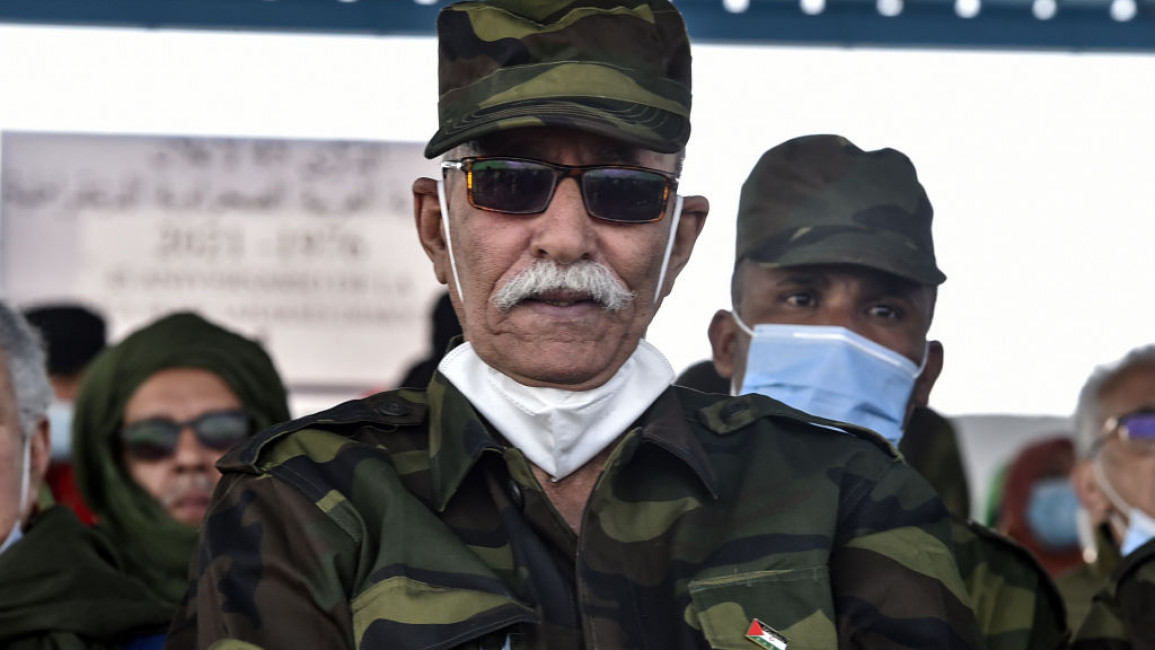Spain's new position on Western Sahara 'shameful': Polisario Front
The Polisario Front, the Sahrawi's self-proclaimed government-in-exile, has condemned Spain's new position regarding Western Sahara after Madrid announced Friday its support for Morocco's autonomy plan to end a six-decade-long conflict over the disputed territory.
Since decolonising the territory in 1975, Spain has tried to appear neutral on the issue.
However, Spanish Foreign Minister Jose Manuel Albares on Friday said Rabat's 2007 proposal to offer Western Sahara autonomy within Morocco was the "most serious, realistic and credible basis."
In 2006, Morocco presented its autonomy plan for the territory, which is supposed to allow Sahrawis to run their affairs "democratically", through legislative, executive, and judicial bodies, while Morocco retains control over the defence and foreign relations.
The UN has backed the plan, but the Polisario Front, which continues to call for an independent state for Sahrawis, rejects Rabat's proposal.
In a recorded speech, The Polisario Front's president Brahim Ghali said that Spain's new position is "unfortunate" and "shameful."
⭕️ Presidente de la República, Secretario General del Frente POLISARIO Brahim Gali; “El presidente del Gobierno de España Pedro Sánchez con esta actitud, en una vergonzosa similitud con el tuit de Trump, quiere dar lo que no le corresponde a quien no lo merece” #SaharaOccidental pic.twitter.com/0okZINiWwU
— Frente POLISARIO (@Polisario_) March 20, 2022
"With this attitude, the Spanish state repeats the betrayal it committed, in 1975, when it illegally and illegitimately divided Western Sahara and all its people through the disastrous Madrid Agreements," added Ghali in a recorded speech, broadcasted yesterday on Algerian state TV.
Amidst the end of Spain's colonial empire, Madrid concluded with Morocco and Mauritania the Madrid Agreements in 1975, in which Morocco acquired the northern two-thirds of the territory, while Mauritania acquired the southern third.
The agreement was bitterly opposed by the Polisario Front, which considered it simply substitution one colonisation process to another.
During his speech, Ghali has also compared Madrid's new position with Washington's recognition of Morocco's sovereignty over the territory, saying "they want to give what they do not own to those who do not deserve it."
Late in 2020, the US recognised Morocco's sovereignty over the disputed territory in exchange for the kingdom's normalisation with Israel.
According to the Spanish newspaper EPE, Madrid's support for the Moroccan autonomy plan for Western Sahara came in an exchange for Rabat's commitment to waive the demand for Ceuta, Melilla, and the Canary Islands. Morocco calls them the occupied "Sebtah and Melilah."
Despite Rabat's continual demand of their return, its pursuit to regain control over them has been lukewarm at best, and nothing like its aggressive drive to control the Western Sahara.
A "win-win" agreement was reached after eight months of continuous and intense negotiations that involved Mohamed VI, the Spanish King Felipe VI, and Pedro Sánchez, Spain's prime minister.
In April 2021, ties between Madrid and Rabat hit a low when Spain allowed Polisario leader Brahim Ghali into Spanish soil for medical treatment. Rabat reacted furiously, recalling its ambassador from Madrid.
The following month, Spain was caught off guard when more than 8000, including an estimated 2,000 minors, stormed Cueta borders. Crammed boats with men, women, and children crossed the border, while many other migrants were pictured swimming desperately or even paddling across the fences.
Spain accused Morocco of deliberately putting thousands of lives at risk in order to blackmail Madrid during the diplomatic dispute.
Morocco reportedly returned its ambassador to Madrid Sunday after reconciliation.



